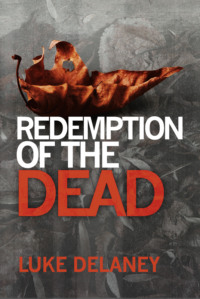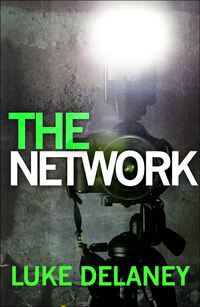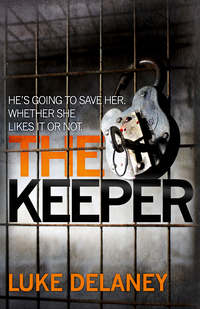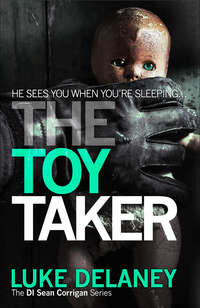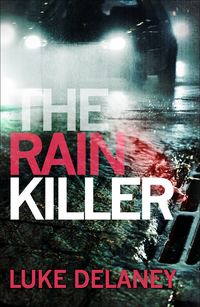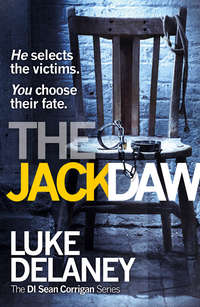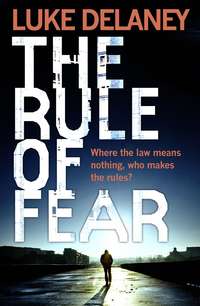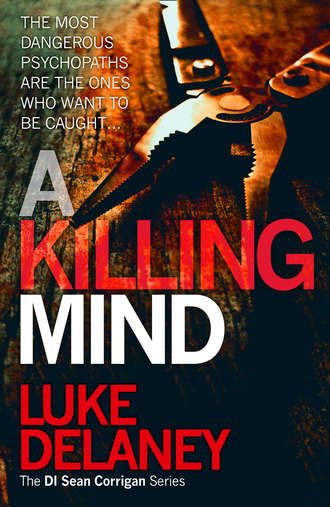
Полная версия
A Killing Mind
‘I’ve read your report,’ Addis told him, ‘and I’m aware of the killer’s viciousness and timescale, but what I want to know is: what do you think?’
‘I’m not sure I understand,’ Sean lied.
‘I’m sure you do,’ Addis insisted. ‘After all, it’s the very reason you’re here, isn’t it? Your instinct. Your imagination. Tell me: why do you think he’s doing this?’
‘His motivation?’ Sean was reluctant to give away too much. In time, Addis would learn everything he believed he knew about the killer, but he was conscious of the need to drip-feed the information. If Addis knew how quickly he could read a killer, fathom out his reasoning and desires, it would put him and his team under pressure to wrap up cases in no time at all. He needed Addis to believe it was a slow, step by step process; that it took time to evaluate and justify his observations and profile the killer.
‘Not just his motivation,’ Addis made himself clear. ‘His reason for killing.’
‘It’s too early to go beyond saying he’s vicious, organized and careful – and that’s he’s most likely on a constrained time cycle.’ He waited for Addis to react, but those lifeless blue eyes merely stared back at him like the sky shining through an empty skull. ‘It’s too early for me to say more.’
‘I see.’ Addis decided to let it go – for now. ‘Then perhaps Anna can help you. I have a lot of faith in her.’
The mention of her name made Sean’s whole body tense. ‘She’s better than most,’ he managed to say.
‘She seemed to help you in the last investigation,’ Addis reminded him.
‘I bounced some ideas off her,’ he replied, considering the unpleasant idea that Addis knew he’d turned her around and that now, instead of reporting to Addis about him, she’d be reporting to him about Addis. Maybe Addis was now playing them both. ‘But she didn’t solve anything,’ he said, maintaining his mirage of indifference to her. ‘Psychiatrists, criminologists, psychologists – they don’t solve crimes. Never have done. Never will. Detectives solve crimes.’
‘That’s as maybe,’ Addis told him, barely disguising his irritation that Sean had said detectives instead of police, ‘but it is my wish that she assists you, so assist you she will.’
‘Fine,’ he shrugged.
His business concluded, Addis got to his feet. ‘Well, if your theory is correct, you don’t have long till he kills again – so I’ll leave you to get on. Any media work or appeals you need doing, let me know. I’m aware you have an aversion to handling that side of things yourself. But get this solved quickly, Sean,’ he warned. ‘We don’t want another Sebastian Gibran on our hands.’ He spun on his polished heels and was gone.
‘We’ll never have another Sebastian Gibran,’ Sean said under his breath. From the corner of his eye he saw Donnelly enter the main office looking dishevelled in his cheap suit and coat, tie hanging loose around his neck and unkempt moustache bushier than ever. He’d looked like that ever since Sean first met him, but what gave him cause for concern was the missing spring in Donnelly’s step. Despite his size, he always used to move like a much lighter, fitter, younger man, but now it was as if he carried the weight of the world on his back.
Sean moved to the doorway and stood staring into the main office, waiting to catch Donnelly’s eye as he headed slowly towards his own office. Eventually, he was so close he couldn’t avoid Sean’s gaze any more and was summoned into his office by a jut of his chin. Sean returned to his chair and waited for Donnelly to reach the entrance to his office.
‘You want me for something?’ Donnelly asked without entering. He sounded irritable and annoyed.
‘I want to know where the hell you’ve been,’ Sean told him. ‘This is no time for you to be going AWOL.’
‘I wasn’t. I went straight from home to check on the door-to-door. I get off the train at London Bridge anyway.’
Sean didn’t believe a word of it and knew that a quick phone call could prove Donnelly wrong, but he could see no value in stirring up conflict or embarrassment when he could least afford the team to be fractured in any way. ‘Fine,’ he played along, ‘but the door-to-door teams will be OK without you from now on. Paulo can keep an eye on them. I need you for other things.’
‘Like what?’ Donnelly asked grumpily.
‘When I know, you’ll know,’ Sean told him. He would have said more, but the desk phone began to ring and Donnelly took the opportunity to slip away while he grabbed the handset from its base. ‘DI Corrigan.’
‘Detective Inspector Corrigan,’ Geoff Jackson replied with barely disguised glee. ‘Still on the same number, I see. Haven’t they given you a shiny new office away from the Yard?’
It had been a long time, but Sean recognized his voice immediately. ‘Jackson. What do you want?’
‘There are a couple of things I think you can help me with,’ Jackson answered in a friendly tone, despite the fact he knew Sean despised him. ‘Why don’t we start with these murders I hear you’re investigating. Sounds interesting. Very interesting.’
‘You know nothing about what I’m investigating,’ Sean insisted.
‘I know they’re linked,’ Jackson replied.
‘So what?’ Sean argued. ‘We’re making no secret of that. You know nothing other than what you’ve been told by us.’
‘I know he pulled their teeth out,’ Jackson persevered, ‘but something tells me this isn’t some drug turf war. We’re talking about a serial killer who takes his victims’ teeth. Sounds like something the public have a right to know about.’
‘I’ll decide what’s in the public’s interest for them to know,’ Sean told him. ‘Not you.’
‘Come on,’ Jackson encouraged. ‘Give me something the other hacks don’t know. Something exclusive. I promise to show you and the SIU in a good light.’
‘You seriously think I’d trust you?’ Sean asked, his voice full of disbelief. ‘Go to hell, Jackson.’
‘Well then maybe you can help me with something else?’ he quickly said before Sean could hang up.
He took the bait. ‘Like what?’
‘I take it you’ve seen today’s edition of The World?’
Sean looked down at the newspaper Addis had left on his desk, still open at the centre pages. ‘No,’ he lied. ‘Why would I want to read that garbage?’
‘To take a look at the centre-page spread,’ Jackson told him, ‘my interview with Sebastian Gibran. Thought you of all people would be interested in seeing what he has to say.’
‘Gibran’s got nothing to say that could interest me,’ Sean answered. ‘Unless he wants to confess to any other murders. He’s locked up in Broadmoor, bored out of his brains, looking for cheap thrills – and that’s what you are to him: a cheap thrill.’
‘I don’t think so. If you read the story, you’d see for yourself.’
‘Listen,’ Sean warned him, ‘you don’t know what you’re dealing with. Gibran’s dangerous. More dangerous than you can imagine.’
‘Why, Inspector,’ Jackson mimicked sentimentality, ‘I didn’t know you cared.’
‘I don’t,’ Sean told him, although it wasn’t entirely true. He disliked Jackson and knew he was potentially dangerous to any investigation, but he admired his guts and tenacity. If Jackson was a detective, Sean would want him on his team. ‘But if he pulls a razor blade out of his arsehole during one of your little chats and cuts your throat, I’ll be the one clearing up your mess. Literally.’
‘I’m no fool, Corrigan,’ Jackson replied. ‘If he tries anything, I’ll see it coming before he has the chance.’
‘Now you’re lying to yourself,’ Sean said calmly, ‘as well as to me.’ There was a longer silence between them than Sean could ever remember. It was enough to let him know that, underneath all the bravado, and despite the bravery he’d shown in the past, Jackson was genuinely scared of Gibran.
‘I thought maybe you’d want to get involved,’ Jackson told him, recovering his composure. ‘Seeing as you’re “the cop who caught the killer”. Help foster better relations between the Met and the media. Would be a great fucking story.’
‘Take care, Jackson,’ Sean replied and hung up. He stared at the phone for a moment then headed to Donnelly’s small office next door.
‘Grab your coat,’ he told him.
‘We going somewhere?’ Donnelly asked, looking like a man who had no wish to go anywhere.
‘North London MIT,’ Sean explained. ‘We need to speak to them about Tanya Richards.’
Sally walked along Oxford Street with DC Fiona Cahill at her side. At twenty-seven, Cahill was ten years Sally’s junior and happy to follow her lead and learn from her experience. She even copied the way Sally dressed, although she was much taller and naturally more elegant, with her hazel hair cut short. Each woman carried a photograph of the smiling William Dalton in her coat pocket, but so far they’d had little luck in finding anyone who wanted to talk about the dead man. They’d spoken to more than a dozen homeless people, almost all of whom had openly told them they knew the victim, but no one could help them with his movements or suggest who would want to hurt him. Sally sensed their suspicion of the police, despite the fact they were trying to find a homeless man’s murderer. Many of the West End’s visible forgotten lived in anonymity and wanted to keep it that way.
As they crossed the junction with Bird Street, Sally saw a catering van parked up. From the open side-hatch a white woman in her mid-forties, not much taller than herself, stood dispensing hot drinks and sandwiches to a small gathering of the homeless, most of them men. Clouds of steam swirled from their boiling cups and disappeared into the freezing London sky. When they saw Sally and Cahill pulling out their warrant cards, the entire group immediately turned their backs and took a few steps away.
‘DS Sally Jones,’ she told the woman at the serving hatch. ‘And my colleague, DC Cahill. Special Investigations Unit, Metropolitan Police.’
‘I may not have known who you were,’ the woman smiled, ‘but I could tell what you are and why you’re here.’
‘Oh?’ Sally asked.
‘Word spreads fast,’ she explained. ‘Faster than you can walk anyway.’
‘And you are?’ Sally asked.
‘Izzy. Izzy Birkby, from the charity Reach Out. We do what we can to help – hot drinks and sandwiches, sometimes just someone who’ll listen. We don’t lecture them or try to get them to rejoin society. There are enough people doing that. We don’t judge. I assume you’re here about poor Will.’
‘Yes,’ Sally replied. She held up the picture. ‘Is this the man you know as Will?’
‘Man?’ Birkby raised an eyebrow. ‘More of a boy, don’t you think?’ Sally said nothing, but carried on holding the photograph out for the woman to look at. ‘Yeah. That’s him,’ she confirmed, ‘although he didn’t look like that when he was living on the street. You’d be surprised how quickly being homeless changes the way a person looks.’
Sally had been in the job long enough not to be surprised, but she let it go without comment. ‘How well did you know him?’
‘Pretty well,’ Birkby explained. ‘For a few months, at least. We always try to look after the young ones – especially the drug users. Once they get high, they forget to eat and then they don’t last very long out here.’
‘You knew he was taking drugs?’ Cahill asked.
‘Of course,’ Birkby admitted, surprised by the question. ‘A lot of our customers are drug users.’
‘Did you try to get him to stop?’ Cahill asked. ‘Or tell someone who could have helped him?’
‘Like I said,’ Birkby reminded her, ‘we don’t judge. If we start putting pressure on them they’ll shy away and we won’t be able to help them at all. We can’t allow ourselves to get too attached to them either. A lot of young people don’t make it out of here. We can’t afford to fall apart every time one doesn’t.’
‘Soup and sandwiches, right?’ Sally nodded.
‘Right,’ Birkby answered. ‘Soup and sandwiches.’
‘What can you tell us about him?’ Sally asked. ‘Anything at all could be useful.’ Birkby looked nervously at the homeless huddle. ‘You don’t have to be afraid of betraying anyone’s trust,’ Sally told her. ‘William’s dead now. All we want is to find whoever killed him.’
Birkby took a deep breath and nodded, as if she’d come to a decision. ‘He appeared on the street a few months ago,’ she began. ‘Was a bit of a loner at first, but soon realized it made him vulnerable, so began to team up with others to go begging. He seemed a nice kid, you know, but the drugs had got a good hold on him. Crack, I think. He got kicked out of a couple of night hostels for using drugs, so decided he’d rather sleep rough and be left to his vices than be told what to do.’
‘But he didn’t sleep rough in the West End,’ Sally reminded her.
‘No,’ she acknowledged. ‘Some of the weaker ones make easy targets for muggings or cops looking for easy drugs arrests.’
‘And he was one of the weaker ones?’ Cahill asked.
Birkby shrugged.
‘Looks like someone found out where he was staying,’ Sally said. ‘Did he tell people where he was living?’
‘No,’ she replied. ‘He told me south of the river, but didn’t say anything more specific.’
‘What about anyone from the homeless community?’ Sally asked, looking over at the dishevelled figures eating and drinking. ‘Could someone have known?’
‘Maybe.’ Birkby called across to two of the younger men in the group. ‘Tom. Archie.’ They both looked in her direction. ‘These guys knew William. Maybe they can help.’ The two young men, wearing layer upon of layer of clothes to defend against the bitter cold, shuffled forward. Little could be seen of their faces aside from their eyes, peering through small gaps in the mixture of hats and scarfs they wore.
‘What’s up?’ Archie asked, shuffling from one foot to the other to keep warm.
‘These are detectives,’ Birkby explained. ‘Trying to find out why someone attacked William. You guys knew him pretty well, right?’
‘I guess,’ Archie shrugged.
‘William didn’t sleep in the West End,’ Sally took over. ‘Do you know where he went?’
‘Nah.’ Archie shook his head. ‘Said he had a garage over by London Bridge. He never said where.’
‘And you?’ Sally asked Tom. ‘Did he tell you where?’
‘No, man,’ Tom mumbled, looking anywhere other than at the detectives. ‘Never showed anybody. Never told anybody.’
‘People’re saying he must have been followed,’ Archie said, fidgeting where he stood, the fear sharp and real in his eyes.
‘Nobody knows that,’ Sally told him.
‘Yeah, well, people are scared,’ Archie continued. ‘People are saying he killed a woman in the same way. A prostitute or something. Took her teeth just like he did with Will. People are saying he’s evil – that he’s hunting people like us, like we’re some kind of animals – that the teeth are his trophies. Some people are saying he’s not even a man – that he’s something else – something no one can stop. Not even the police.’
‘All right,’ Birkby interrupted. ‘That sort of talk’s only going to make people more afraid.’
‘People couldn’t be more afraid,’ Archie told her. ‘We don’t have safe places to go. We don’t have doors we can lock. We’re easy prey, man. Easy prey.’
‘I understand your fears,’ Sally explained, ‘but there’s no evil out there – just a man. A man who pretty soon we’ll catch. Until then, everybody needs to be extra vigilant and look out for each other. Keep your eyes open for any strangers who don’t fit in, anyone acting suspiciously and make sure you report it.’
‘Have there been?’ Cahill asked. ‘Have there been any strangers hanging around?’
‘There are always strangers in the West End,’ Archie told her.
‘Any that concerned you?’ Cahill pressed. The two men merely shrugged and looked at the ground.
‘Anyone you can think of who we should be speaking to?’ Sally asked. ‘Someone who knew William better than most.’
‘Yeah, sure,’ Archie answered without hesitation. ‘You should speak with Jonnie. He and Will did stuff together, you know.’
‘You got a surname?’ Cahill asked.
‘Dunno,’ Archie answered, scratching his head through the multiple layers. ‘Everyone just calls him Jonnie.’
‘Freyland,’ Tom suddenly blurted out. ‘His surname is Freyland, but I ain’t seen him around for a couple of days. Not since that shit happened to Will.’
‘Is that unusual?’ Sally asked.
Tom shrugged and looked into the sky. ‘I guess.’
Sally and Cahill exchanged knowing glances. ‘Then I think we’d better find him,’ Sally said, pulling several business cards from her coat pocket and handing them out to her audience of three – giving extra cards to Archie. ‘Spread those around for me,’ she told him. ‘If anyone thinks they know something or knows where we can find Jonnie, get them to call me. Understand?’
‘OK,’ Archie answered unenthusiastically.
‘I’m trying to do the right thing for Will,’ she explained, finally making eye contact with him. ‘I only hope you are too.’
Sean and Donnelly arrived at what used to be the old Metropolitan Police Cadet school. The place had long since been taken over by various support services and police units, including the Murder Investigation Teams for North London. They drove on to the parade ground that was only ever used now for passing out ceremonies for recruits who’d successfully made it through the famous Training School in Hendon and parked. Both men had strong memories of marching around the hallowed ground, watched by proud friends and family.
‘Fucking hate this place,’ Donnelly moaned. ‘Reminds me of training school.’
‘Didn’t like it here?’ Sean asked.
‘You joking?’ Donnelly sneered. ‘All that polishing shoes, starched shirts and short hair. All that yes, sir, no, sir bullshit. Fucking couldn’t wait to get out.’
‘I kind of liked it,’ Sean told him. ‘Didn’t at first – found the discipline and petty rules tough, but I got over it. Enjoyed it in the end.’
‘How the hell did you manage that?’
‘I embraced it,’ Sean answered. ‘Made sure my shoes were the shiniest, my uniform the best pressed. Got fitter and faster than anyone else. Stopped fighting the system. I took a break from all the shit of the world outside and focused on doing the little things well.’
‘All the shit of the world?’ Donnelly mocked him. ‘You must have had a fucking shit childhood if Hendon was an escape.’
Donnelly had no idea how close to the bone his remark was. Sean felt himself tense at the mere mention of his childhood, ugly memories of his abusive father invading his mind like a marauding horde, all those hours he’d endured, locked in his father’s bedroom while his mother pretended not to know what was happening. Quickly he fought to rebuild the walls that kept the darkness and demons at bay and allowed him to live almost like any other person. He swallowed the anger he felt towards Donnelly for having mentioned his childhood, albeit without knowing what it meant to him. ‘It’s a state of mind, that’s all,’ he answered. ‘Like most things.’
‘Not sure about that,’ Donnelly replied and heaved himself out of the car. Sean gave himself a few seconds to let the last remnants of his childhood memories fade away before following suit. They headed across the parade ground towards the low-rise building where the North London MITs had their offices. Once inside, they searched the corridors until they found the team they were looking for.
Sean stopped the first person he came across: ‘I’m looking for DCI Morris.’
The young male detective glanced at Sean’s warrant card, which now hung flapped over his jacket’s breast pocket. ‘She’s in her office,’ he answered, pointing to an area partitioned off with Perspex, much like the office Sean occupied at the Yard. ‘I think she’s in.’
Sean thanked him and headed across the main office.
‘Look at the size of this place,’ Donnelly complained jealously. ‘If we can get out the Yard, maybe we can get a decent-sized office too.’
‘You want to travel from Swanley to Hendon every day?’ Sean asked.
‘No, but there must be a police building somewhere south of the river we can use.’
‘You want to go back to Peckham?’
‘I was thinking Bromley,’ Donnelly answered as they reached the open door to the office.
Sean took a look inside and saw a woman in her early forties sitting at her desk. He knocked on the frame.
‘Yes?’ she said, eyeing them with a degree of suspicion.
‘DCI Morris?’ Sean asked.
‘Yes,’ she repeated herself and brushed her short, almost black hair from the side of her attractive, but stern-looking face. He guessed she was on accelerated promotion – just passing through on her way to better and bigger things. At least she’d have added heading up a Murder Investigation Team to her CV.
‘DI Sean Corrigan,’ he told her. ‘SIU.’ He let Donnelly speak for himself.
‘DS Dave Donnelly – from the same.’
‘I know who you are,’ she replied, looking directly at Sean to let him know she was addressing him and only him. ‘I’ve seen your face in the newspapers – after you caught the Jackdaw.’
‘We didn’t catch him,’ Donnelly jumped in. ‘I killed him.’
‘Yes,’ she stuttered slightly. ‘I remember.’
‘That was quite a while ago,’ Sean told her, keen to move on. ‘I haven’t been in any newspapers since then.’
‘I have a good memory for faces,’ she explained. ‘I take it you’re here about the Tanya Richards murder,’ she got down to business. ‘In which case you’d better come in and take a seat.’ They accepted her invitation and sat in the chairs on the opposite side of her desk while she leaned back and watched their every move until they were settled. ‘I’m not happy about losing the investigation,’ she told them frankly. ‘It was an interesting job – a bit different from the normal rubbish. It had potential.’
Potential, Sean thought. She meant potential to get her noticed. ‘As soon as it became apparent it was linked to another murder it became a matter for the SIU. A murder series would stretch a local MIT too much,’ he told her. ‘Believe me – I know. These things are best investigated by a central unit.’
‘We could have handled it,’ she argued. ‘We were making progress.’
‘You were concentrating your efforts on finding her pimp,’ Sean reminded her.
‘He’s not been seen since the day she was killed. A prostitute is tortured and killed and her pimp disappears – I’d say that’s good reason to concentrate on him as the prime suspect.’
‘Understandable,’ Sean agreed, knowing diplomacy not conflict was the best way to get what he wanted, ‘and he still needs to be spoken to.’
‘If you can find him,’ she said. ‘Mehmet has a history of going underground when he knows we’re looking for him – and that’s a pretty regular occurrence.’
‘Much form then?’ Sean asked.
‘A lifetime of it,’ Morris told him. ‘Everything from rape and attempted murder to false imprisonment and blackmail. I wouldn’t be too quick to dismiss him as a suspect.’
‘He’ll be spoken to,’ Sean assured her, although instinctively he knew Mehmet wasn’t his man. ‘Tell me about the scene.’
‘Haven’t you seen the report?’
‘I’ve seen it,’ he answered, ‘but I want to hear what it was like from somebody who was actually there. You did go to the scene, didn’t you?’
‘Of course,’ Morris assured him.
‘And the body was still in situ?
‘Yes.’
‘What did you see?’
‘I saw a young woman who’d been horribly murdered. She’d had her throat cut almost to the bone and the side of her neck sliced open, causing her to bleed to death. Her fingernails and some of her teeth had been removed, and there were clear signs of sexual assault.’
‘Such as?’ Sean pressed.
‘Her skirt had been pulled up and her underwear ripped off. Her legs were apart when she was found.’
‘So,’ Sean added, ‘he killed her immediately after he raped her or she was already dead.’
‘Surely he raped her while she was alive?’ Morris said. ‘Rape is a crime of power and humiliation. He’d want her alive when he did it or what would be the point?’


